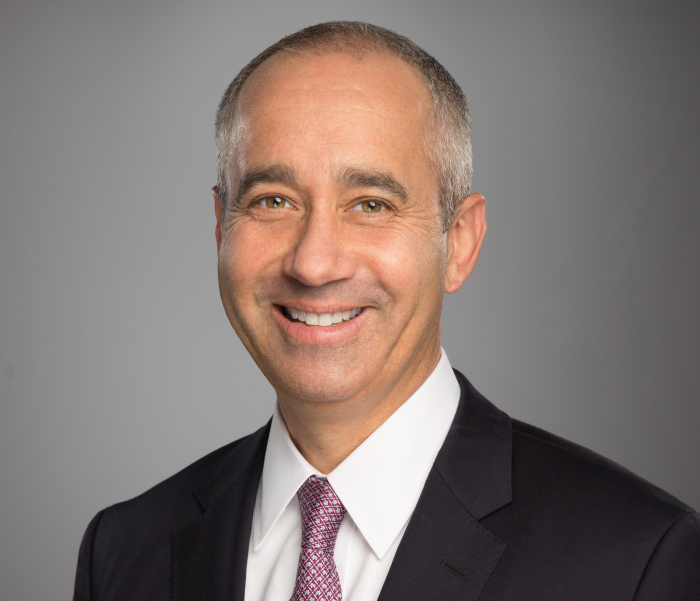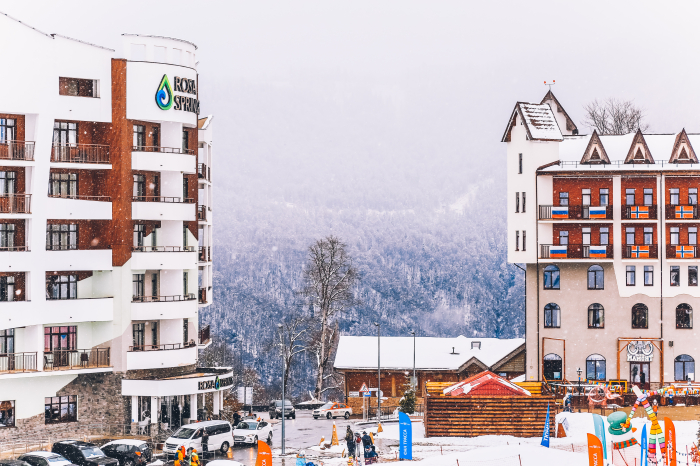Sculptor Capital bets on non-traditional real estate
Debts on cell towers, parking lots may deliver double-digit returns
By May 20, 2021 (Gmt+09:00)

Non-traditional real estate assets such as cell towers, parking lots and marinas will likely provide significant investment opportunities to debt investors and offer much higher returns than traditional sectors such as hotels, office buildings and logistics facilities, according to Sculptor Capital Management's real estate head.
Non-traditional sectors, which also encompass gaming facilities, golf courses, ski resorts and horse parks, are expected to increasingly resort to non-banking lenders to solve their liquidity problems, after traditional banks have slashed credit limits to some of them, said Steve Orbuch, founder and president of Sculptor Capital Management's real estate arm, Sculptor Real Estate (SRE).
"There is a very significant need for debt financing across the non-traditional product types in Europe, arguably a greater need than in the US," Orbuch said in an interview with Market Insight. The interview was conducted on the sidelines of the ASK Conference 2021 hosted by The Korea Economic Daily on May 12.
"While certain asset classes, for example, industrial, life sciences and data centers, are seeing significant amounts of liquidity leading to aggressive debt financing, we are finding opportunities in the non-traditional sectors such as marinas, horse parks, gaming facilities, etc. where we can originate senior loans to generate unlevered double-digit yields at 300-400 basis point premiums to more traditional property types for lower risk."┬Ā
He took an example of lodging facilities, which are classified as a non-traditional sector in Europe, as an area where non-banking financing demand would pick up.
Non-traditional real estate assets can also provide less correlation to the broader economic conditions, thus helping diversify real estate portfolios.
With the traditional real estate sectors experiencing a deepening divide between the beneficiaries of the pandemic and those not, offices in central business districts still present a cloudy picture, he added.

Before joining Sculptor Capital to set up the real estate arm, Orbuch had worked as managing director of Blackstone Real Estate Advisors.
Sculptor Real Estate has raised $7.8 billion in total commitments and made over 170 investments across both opportunistic equity and credit platforms in the US and Europe. Its parent firm Sculptor Capital, founded in 1994, manages approximately $37 billion in assets as of May 1, 2021.┬Ā
The following is a transcript of the interview.
Ō¢▓ Where are you seeing opportunities today in real estate debt markets?
"Currently, we believe we have now entered into more of a distressed debt phase, where declining fundamentals brought on by the mandated lockdowns are leading to loan defaults and the need for recapitalization. As such, we are beginning to see ŌĆ£motivatedŌĆØ divestitures and the need for structured capital solutions in the private real estate market."

Ō¢▓ Please elaborate on non-traditional real estate sectors.
"The non-traditional sectors we focus on typically share certain characteristics which we believe make them more attractive investment candidates, including less correlation to broader economic conditions, significant barriers to entry (which may include regulatory overlays, legal restrictions, or the need for property level operating expertise), demonstrated resilience in economic downturns (such as marinas and gaming even during the global financial crisis), more limited new supply conditions (such as golf and ski resorts), and less competitive processes since these areas are less trafficked by traditional real estate investors, which leads to an ability to structure greater downside protections into transactions, all collectively leading to more attractive risk adjusted returns."
Ō¢▓ Any example of pricing anomalies you are currently seeing between traditional and non-traditional sectors?
"Historically, illiquidity within gateway markets and traditional property types has been very rare. Post - Covid, however, these markets and sectors are under pressure, with CBD office and urban multifamily facing challenges in the debt and equity markets.""In addition, while certain asset classes, e.g., industrial, life-sciences, data centers, are seeing significant amounts of liquidity leading to aggressive debt financing, we are finding opportunities in the non-traditional sectors such as marinas, horse parks, gaming facilities, etc. where we can originate senior loans to generate unlevered double digit yields at 300-400bps premium to more traditional property types for lower risk.
Ō¢▓What types of opportunities are you seeing in the European RE Debt markets?
"Generally speaking, there is a very significant need for debt financing across the non-traditional product types in Europe, arguably a greater need than in the US. Historically, the European debt markets have been heavily reliant on the traditional banking system for real estate credit. Relative to the US market, there is very limited liquidity in the CMBS market or alternative lender market."
"Today, as values are coming down and higher LTVs are needed to refinance existing capital stacks, in particular on non-traditional asset classes, traditional banks are not able to meet the demand, creating significant opportunity for alternative lenders."
"As such, the recovery of the European debt capital markets in the aftermath of COVID-19 for asset classes like lodging, which obviously experienced meaningful disruption in connection with the pandemic, is likely to create even greater aversion from certain bank lenders, which SRE believes will create more significant lending opportunities."

Ō¢▓ How would be the impact of the recovery from the global pandemic on certain real estate sectors?
"Unlike prior recessions and corrections, where the impacts of economic slowdowns are felt more broadly across the economy and as such, across the real estate markets, the unique nature of the conditions brought on by the pandemic and the related government mandated lockdowns have had varying effects across industries and segments of the economy."Ō¢▓Where do you see risks for real estate debt investors investing today and what keeps you up at night?
"For example, when considering one of the most historically liquid asset classes, CBD office, how will the experience of WFH (work from home) flexibility impact cashflows and cap rates for urban office going forward?┬Ā Will de-densification outweigh the WFH trends? Long term, even if each employer requires 10% less office space to accommodate new working behavior, this could shift the market from a landlordŌĆÖs market to a tenantŌĆÖs market, very quickly having dramatic effects on rent levels and concessions."
"In addition, coupled with all the potential changes in the use of real estate, more broadly, the scale of the various stimulus packages that have been implemented by the US federal government has begun to ignite fears around inflation, which should inevitably lead to higher interest rates, which will result in added stress on existing capital structures, higher borrowing costs and potentially higher cap rates, collectively putting pressure on real estate values."
Write to Jun-ho Cha at chacha@hankyung.com
Yeonhee Kim edited this article.
-

-
 Private equityPrivate markets open to more high-net-worth individuals: Hamilton Lane
Private equityPrivate markets open to more high-net-worth individuals: Hamilton LaneApr 16, 2024 (Gmt+09:00)
-
 InfrastructureInfrastructure secondaries continue to rise amid inflation: Stafford
InfrastructureInfrastructure secondaries continue to rise amid inflation: StaffordApr 09, 2024 (Gmt+09:00)
-
 Private equityCarlyleŌĆÖs Rubenstein sees commercial real estate undervalued
Private equityCarlyleŌĆÖs Rubenstein sees commercial real estate undervaluedApr 08, 2024 (Gmt+09:00)
-





